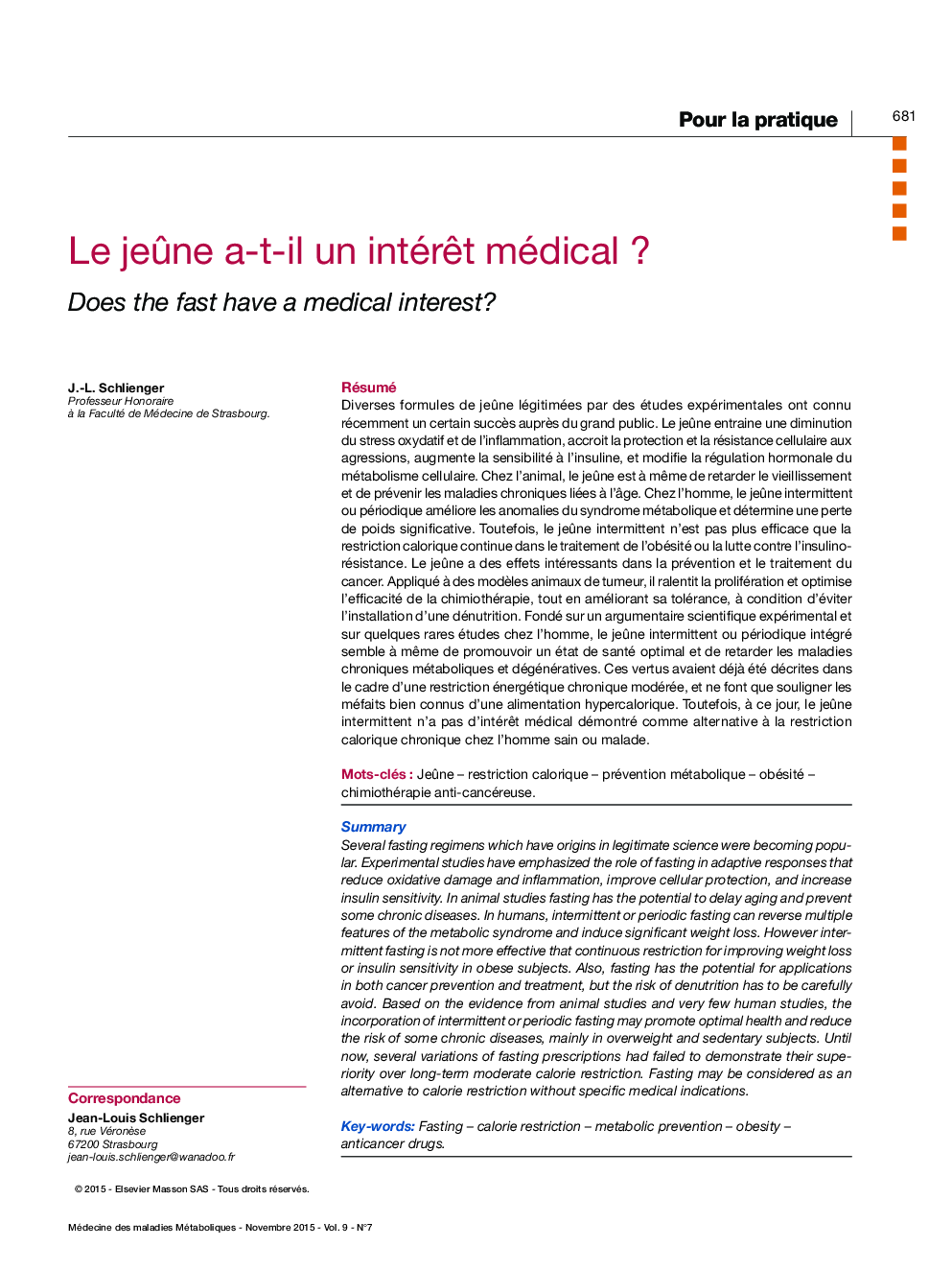| Article ID | Journal | Published Year | Pages | File Type |
|---|---|---|---|---|
| 3274309 | Médecine des Maladies Métaboliques | 2015 | 6 Pages |
Abstract
Several fasting regimens which have origins in legitimate science were becoming popular. Experimental studies have emphasized the role of fasting in adaptive responses that reduce oxidative damage and inflammation, improve cellularprotection, and increase insulin sensitivity. In animal studies fasting has the potential to delay aging andprevent some chronic diseases. In humans, intermittent orperiodic fasting can reverse multiple features of the metabolic syndrome and induce significant weight loss. However intermittent fasting is not more effective that continuous restriction forimproving weight loss or insulin sensitivity in obese subjects. Also, fasting has the potential for applications in both cancer prevention and treatment, but the risk of denutrition has to be carefully avoid. Based on the evidence from animal studies and very few human studies, the incorporation of intermittent orperiodic fasting may promote optimal health and reduce the risk of some chronic diseases, mainly in overweight and sedentary subjects. Until now, several variations of fasting prescriptions had failed to demonstrate their superiority over long-term moderate calorie restriction. Fasting may be considered as an alternative to calorie restriction without specific medical indications.
Related Topics
Health Sciences
Medicine and Dentistry
Endocrinology, Diabetes and Metabolism
Authors
J.-L. Schlienger,
